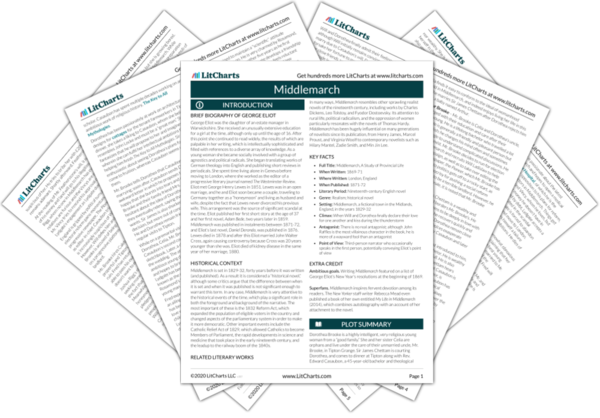Mr. Brooke is and Dorothea’s uncle, who is charged with their education and care after their parents die young. He is a lifelong bachelor who travelled a lot in his youth. He is generally a friendly and pleasant person but also rather foolish; he changes his mind often and sometimes appears to struggle to understand complicated discussions. He is also decidedly sexist. Mr. Brooke decides to run for election as a Whig in Middlemarch and recruits to help with his political campaign, as well as to take over editing the local progressive newspaper, the Pioneer, which Mr. Brooke has purchased. His move into politics gets off to a rocky start, as people accuse him of hypocrisy for pushing a social reform agenda when he is known to be a terrible landlord. However, he perseveres anyway. In the finale, it is noted that Mr. Brooke lives to a very old age.
